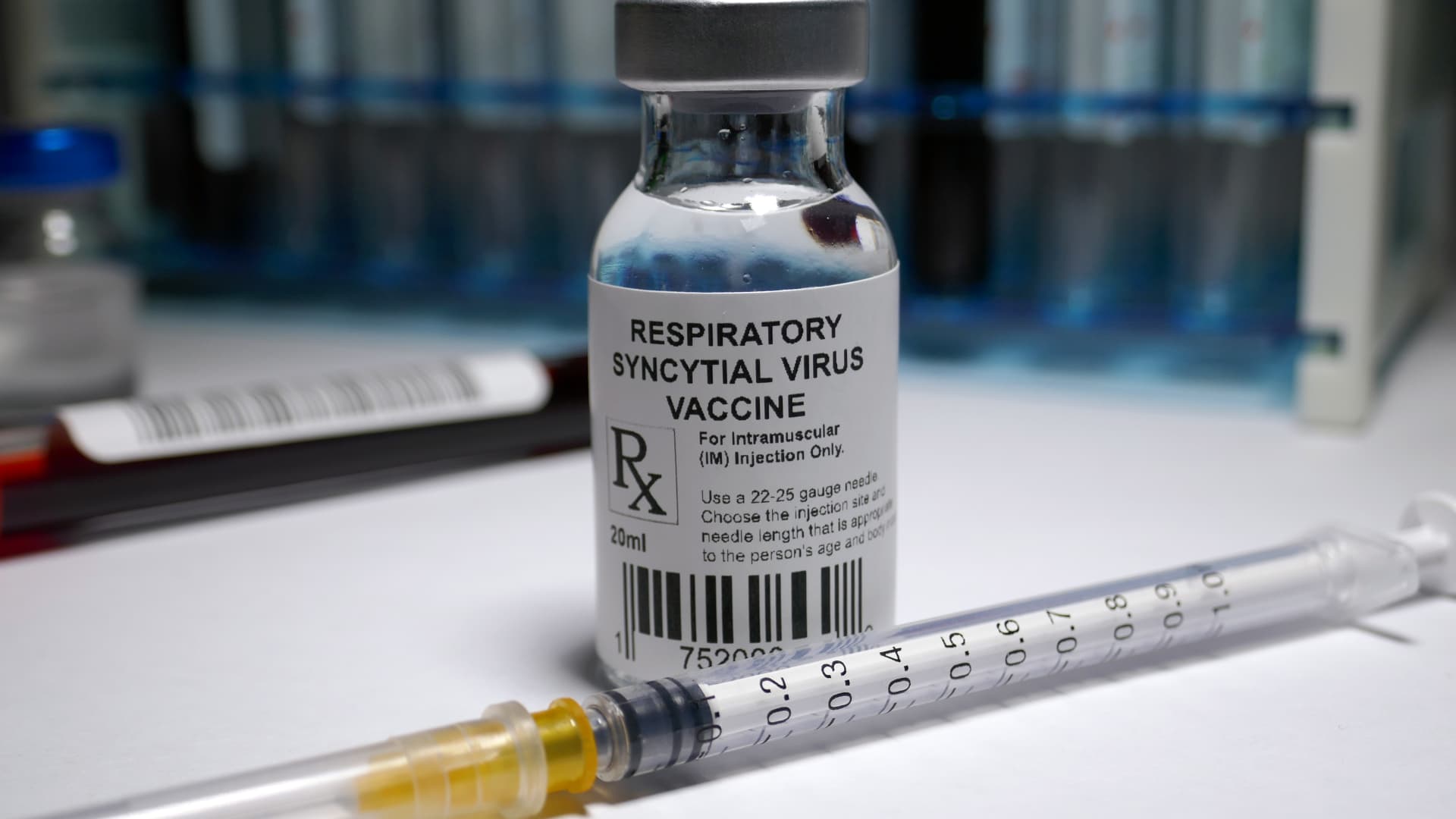
Respiratory syncytial virus – viral vaccine under research
Hailshadow | Istock | Getty Images
A vaccine from Pfizer showed the potential to protect adults ages 18 to 59 who are at increased risk of getting severely sick from respiratory syncytial virus in a late stage clinical trial, the company said Tuesday.
The initial data suggests that Pfizer’s shot, known as Abrysvo, could help protect a far wider population from RSV. The jab is currently approved in the U.S., Europe, Japan and other countries for adults ages 60 and older and expectant mothers who can pass on protection to their fetuses.
But there are no RSV shots approved worldwide for younger, high-risk adults.
RSV causes thousands of hospitalizations and deaths among older Americans and hundreds among infants each year. The virus can also cause severe illness in younger adults with weakened immune systems or underlying chronic conditions such as asthma and diabetes.
Nearly 10% of U.S. adults ages 18 to 49 have a chronic condition that puts them at risk of severe RSV disease, according to Pfizer. That number rises to around 24% for those aged 50 to 64.
“I think about my own family and my friends who have asthma or were carrying conditions from childhood,” Dr. Iona Munjal, Pfizer’s executive director of clinical vaccine research and development, told CNBC. “That population is at risk of getting RSV every single winter … over and over again. There’s no durable immunity without vaccination.”
Munjal added that high-risk adults aged 18 to 59 are the “next logical step” after working to drop rates of RSV disease in older populations.
The data comes as Pfizer tries to win more share of the RSV market after lagging behind GlaxoSmithKline last year. GSK’s RSV vaccine for adults ages 60 and above booked around £1.2 billion ($1.5 billion) in sales last year. Meanwhile, Pfizer’s shot recorded about $890 million in revenue in 2023.
Pfizer said it plans to submit the data to regulatory agencies and file for an expanded approval of Abrysvo for ages 18 and up. The company did not provide any details on the timeline for those plans.
Pfizer also intends to present final results from the trial at an upcoming scientific conference and submit them for publication in a peer-reviewed journal.
Initial safety and efficacy data
CFOTO | Future Publishing | Getty Images
Pfizer said Tuesday its vaccine met the phase three trial’s main goals for efficacy and safety in high-risk adults ages 50 to 59.
The company specifically released data on a sub-study examining nearly 700 patients who are at high risk of severe RSV due to underlying medical conditions. Pfizer expects to release data on another sub-study on roughly 200 patients with weakened immune systems later this year, Munjal told CNBC.
A single dose of the drugmaker’s shot elicited an immune response against RSV A and RSV B, which are the two major subtypes of the virus, according to the results.
The immune response was similar to that observed in adults 60 and above. Previous late stage research on more than 30,000 adults in that older age group found that Pfizer’s shot maintained protection against RSV across two full seasons of the virus.
“The level of antibodies that you see after vaccination in those who are 18 to 60 are similar to those who are 60 and up,” Munjal told CNBC. She later added that it “gives you confidence that across those two populations, they’re actually responding to vaccine the same, and therefore are likely to have a similar efficacy.”
Participants also saw a fourfold increase in their levels of protective antibodies against RSV A and RSV B one month after they received Pfizer’s shot compared to before vaccination.
The company said patients tolerated the vaccine well in the trial. Safety data in high-risk adults ages 18 to 59 was consistent with the results in adults 60 and above, Pfizer added.
GSK released late stage trial data in October suggesting that its shot could protect adults ages 50 to 59.
The Food and Drug Administration in February granted “priority review” to GSK’s application to expand approval of its drug, Arexvy, to that new age group. That designation speeds up the review process for certain drugs for serious conditions.
The FDA is expected to decide whether to approve GSK’s RSV vaccine for adults ages 50 to 59 on June 7.







